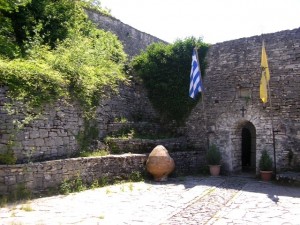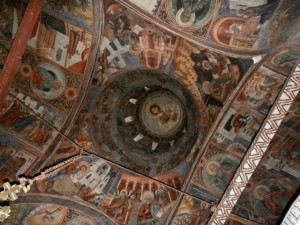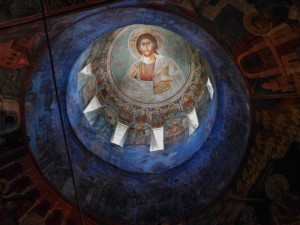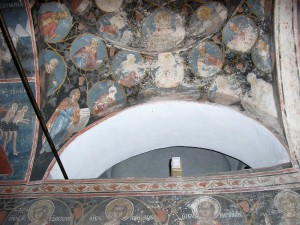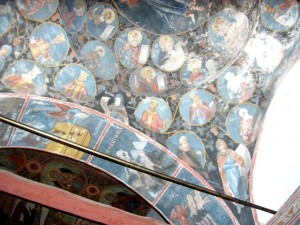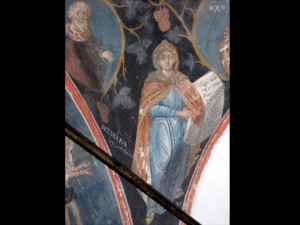Around The World With William Barnes: Part 1 - Greece
Jim Potts
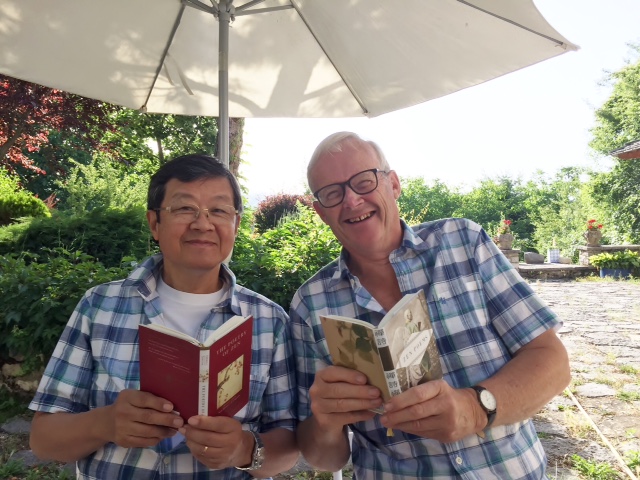
I have spent three months in Greece this summer. For the first time, I forgot to pack a paperback selection of the poems of William Barnes. This year I needed it more than ever, to calm me down after listening to all the distressing and disturbing news from home, on my internet radio.
Luckily, I have Barnes' poems on my Kindle; I can also access them, if I need to, on my laptop.
We welcomed visitors from Japan this summer, old friends of forty-years standing. Amongst other things, we discussed Zen, nature and landscape, some haiku by Basho and Ryokan, and dialects of English and Japanese. I explained to them the importance of William Barnes and his ideas about language and communication. Many Japanese people love the novels of Thomas Hardy, but few are familiar with the writings of Barnes.
Yoshinori became my temporary 'Zen Master' (tongue-in-cheek) “ although he is a former international banker. He wrote a couple of excellent impromptu poems at my request, while in Greece. He grew up in the Snow Country, in Nagaoka, Niigata prefecture, not far from the village of Izumozaki, where the poet-monk Ryokan was born.
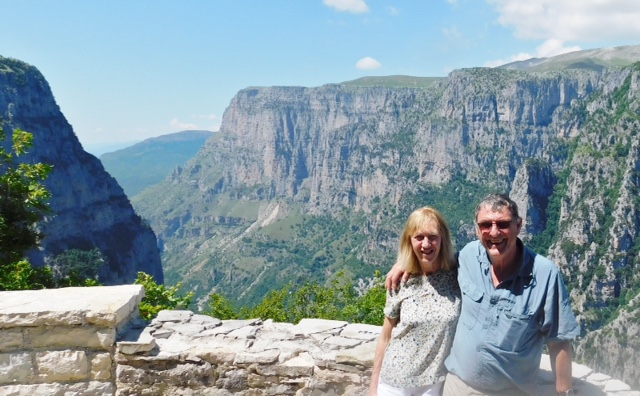
On Corfu, Yoshinori's wife, Kyoko, was delighted to meet a Greek kaÈki captain called Homer, and to renew the acquaintance of a retired banker called Socrates. Socrates and Yoshinori had first met at my daughter’s wedding in London, in the year 2000.
We took them first to the mountains of Epirus, an ideal environment in which to contemplate nature and to approach a state of satori, enlightenment (helped along by a few glasses of tsipouro!)
Other old friends who had visited us in the mountains some weeks earlier were Mark and Sue Allen. Mark is the owner and publisher of a host of magazines and journals, including Wiltshire Life. I once wrote an article on William Barnes in Mere for that fine county magazine. We both grew up in Somerset, near the Dorset border, so we consider ourselves to be West Country lads.
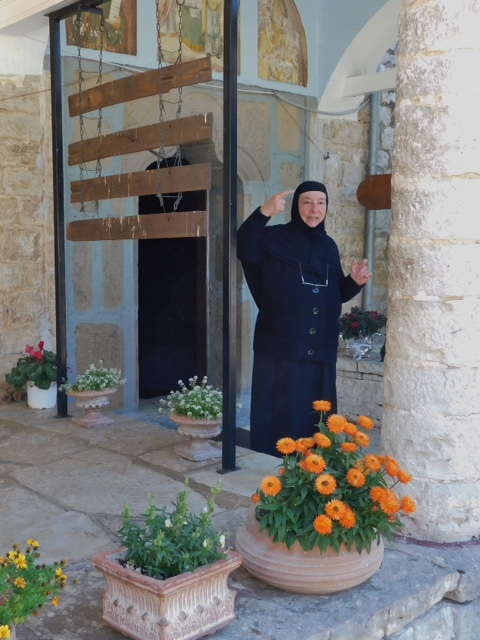
We took both couples, at different times, to visit the Evangelistria Monastery, in Ano Pedina, Zagori. The Gerontissa (the Abbess) pointed out some of the stunning wall paintings of Greek Orthodox Saints, but also of Ancient Greek philosophers and historians – Plato and Aristotle among them, easily recognisable as they are portrayed, of course, without haloes, but the Orthodox Church considers them as moral forerunners of Christianity (they did not believe in the Greek gods). Even more surprising is the depiction of the Cumaean Sybil¹. She (c.f. Virgil in his fourth eclogue) was said go have prophesied the coming of Christ. It should be remembered that Michaelangelo also included five Sibyls amongst the pre-Christian prophetic figures depicted on the ceiling of the Sistine Chapel.
Ultima Cumaei venit iam carminis aetas;
magnus ab integro saeclorum nascitur ordo.
iam redit et Virgo, redeunt Saturnia regna,
iam nova progenies caelo demittitur alto.
tu modo nascenti puero, quo ferrea primum
desinet ac toto surget gens aurea mundo,
casta fave Lucina; tuus iam regnat Apollo.
Virgil, Eclogue IV.
I was reminded of one of William Barnes' poems in his 'Poems, Partly of Rural Life' in 'National English':
Sonnet XVIII, Grecian Maids
Oh! lovely were the Grecian maids of old
When, hand in hand, in heathen holydays,
They sang the solemn hymn, or traced the maze
Of sacred dances, bright with gems and gold;
Or, clad in robes of white or purple, stroll'd
In holy groves, or myrtle-border'd ways;
Or sat and swept the light-toned lute, and told
Wild tales of love, or sung some hero's praise:
But lovelier were the Grecian maids to see
At Greece's Gospel morning, when as yet
The Christian daughters of the holy Paul,
All meek with godly grace, and gather'd all
Within their Christian house of pray'r, they met
With holy kisses at the Agape².
2. Agape feast
Wall-paintings at Evangelistria Monastery
